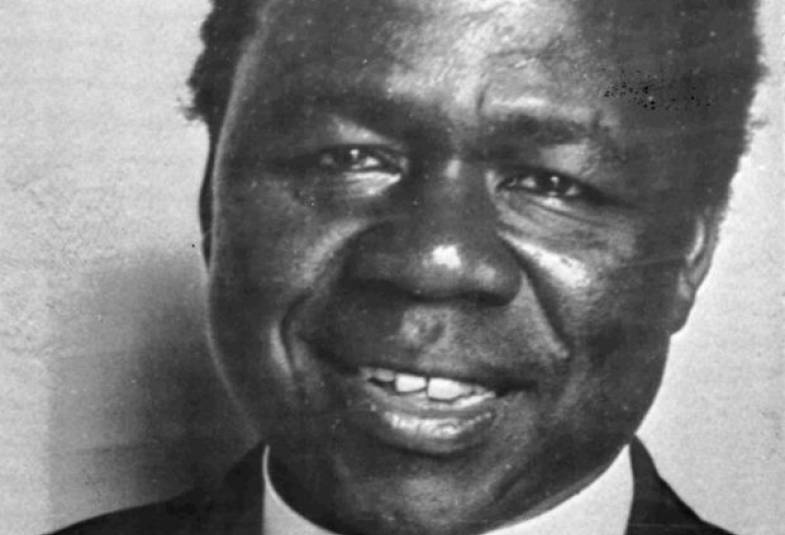17/02/2016

2 Timothy 4:1-8; John 12:24-32
In 1974 a friend took me to a breakfast meeting at which Bishop Festo Kivengere spoke. He was a Ugandan bishop – an extraordinary, powerful, remarkable speaker, who was doing an evangelistic tour of England with three other bishops.
He was utterly passionate in his talk about Jesus Christ, proclaiming the message, and his words were key to my conversion shortly afterwards. I have always – both before and since – had a deep affection for the Church in Uganda. Three years later, in 1977, his Archbishop, Janani Luwum, was murdered by President Amin. It seems likely that he was actually shot personally by Amin. I can remember the shock round the world, after we waited 24 hours after he had disappeared until it was clear that he’d been killed.
Martyrdom has gained a bad name – associated with violence, linked to cruelty, involving manipulation and random death. But when we consider Christian martyrs like Luwum, we see something else.
Instead of violence, there is peace and a seeking of reconciliation. Instead of cruelty there is dignity and mercy. Instead of manipulation there is integrity. Instead of random deaths there is the hope of heaven and life with Christ, a proclamation of the empty tomb.
At Luwum’s funeral, his body being absent, still held by the government of Uganda, the mourners cried out, "He is not here, he is risen.”
Martyrdom is the ultimate witness to the truth of Christ in a way that is meaningless if God does not exist. It says first that the seed which falls into the ground and dies is right, because what cannot be seen in the winter of death is revealed when the sun shines in the spring.
Martyrdom proclaims that popular appeal is not the justification of the good news of the gospel.
It may be – and almost always is in some places, at some times – deeply unpopular to speak of sin, of salvation, of the need for repentance, of the errors of society, of individuals and especially of rulers and leaders, both inside and outside the church.
Perhaps it’s because we are so easily lured into collusion with governments – particularly in established churches – and perhaps because historically we’ve so often been close to those who hold temporal power, that we look with such awe and such gratitude to those who stood against them.
Becket paid the price. So did Cranmer and More, Fisher and the other martyrs of the Reformation. I’m reminded of that every morning as I walk past the fig tree in the courtyard outside Lambeth Palace. It was planted there by Cardinal Pole – the last Roman Catholic Archbishop of Canterbury – after he’d burned his predecessor at the stake.
The harder the times, the deeper the winter, the greater the need to live in the presence of God. And Janani Luwum, a normal human being, did that and stood against the government. He is what in the Christian tradition – particularly the tradition of the early centuries – is known as a red martyr: a martyr whose blood is shed.
There is also – and perhaps something we will identify with more easily – white martyrdom from that tradition. White martyrdom is the life that is so utterly dedicated to Christ that it takes – and is seen to take – visibly seriously those words from the gospel: that the seed must fall into the ground and die. It is the image of the person whose life is so surrendered that they speak of Christ in everything they do and say.
In the Church of England today we have few red martyrs, but there are many white martyrs. They are found in so many parishes. They are found in laity and clergy. They are found in the person who is always there when they are needed, and many of us will have someone in mind. They are found in the people who bear the brunt of what it is to be the Church of England today.
Yet martyrdom – white and red – is above all an act of hope. The Church of Uganda rose to new strength after Luwum. In the gospel reading Jesus gives a great shout of triumph, of expected victory, in defying the powers calling for his death, by affirming that in life and death the glory of God is our aim.
That is where we come to: the glory of God. In our lives, the call to seek the glory of God overwrites even the call of life itself. In seeking God's glory we can do nothing for ourselves. The voice from heaven replies, even to Jesus, “I have glorified it, and I will glorify it again.”
When our lives are surrendered it is God who can be trusted to take that offering and bring it to the glory of His name – and in so doing to offer life to all the world.
In Luwum offering and dying, as with the other martyrs, the name of Christ is held high. We recalled that fact in our silence on the anniversary of the deaths of the Coptic martyrs. In that terrible and evil event just over a year ago, God used the force of evil to defeat evil. The very impetus of evil was thrown to the ground by its over-reach. In all that we do here we must seek not just what we think is right, but before that the glory of God, who is trustworthy beyond death itself.